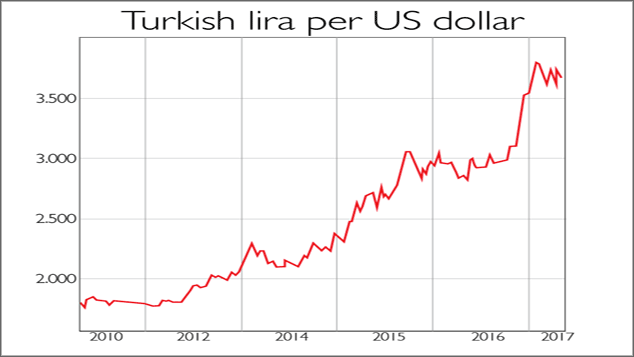
Turkey’s currency, the lira, has ticked up since President Recep Tayyip Erdogan narrowly won a referendum designed to increase his powers: he is now effectively “a 21st-century sultan minimally curbed by parliament”, says The Economist. While markets are hardly happy with Erdogan, at least the uncertainty associated with a likely new election in the event of a No vote is off the table.
But the currency, still near record lows against the US dollar, is highly unlikely to embark on a sustained rebound any time soon. It has slipped as Turkey’s economic performance has ebbed and Erdogan’s increasingly authoritarian tendencies have unsettled foreign investors.
When he came to power in 2003, he made an impressive start, says The Economist. “Encouraged by the IMF, he tamed inflation” – which had reached 100% – “and ushered in economic growth” after the 2000-2001 economic crisis. But Turkey has “gradually shifted away from the economic orthodoxy that worked so well”.
The growth rate has halved to around 3% since the early 2000s. Inflation has risen to a nine-year high of 11.3%, partly because Erdogan has regularly put pressure on the bank to keep rates low. Cronyism is spreading. Now, emboldened by his victory, he is set to increase his hold on the economy, hampering its performance further.